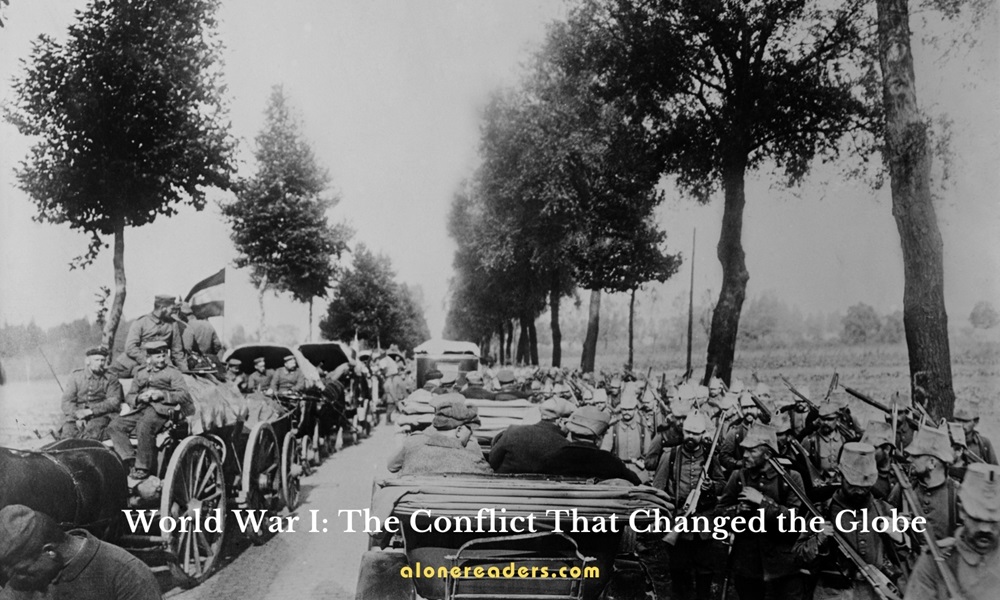
World War I, often termed as the 'Great War', was a pivotal event in human history that drastically altered the course of the 20th century. This conflict, spanning from 1914 to 1918, involved most of the world's great powers and set the stage for major political, cultural, and technological changes. This article delves into the causes, progress, and profound impacts of World War I.
A Tangle of Alliances and Nationalism
The war's roots lay in a complex web of alliances, nationalistic fervor, and colonial ambitions. The assassination of Archduke Franz Ferdinand of Austria in June 1914 triggered a chain reaction, as alliances and treaties drew nations into the conflict. The Central Powers, led by Germany and Austria-Hungary, faced off against the Allies, including France, Britain, Russia, and later the United States.
The Powder Keg of Europe
Europe had become a powder keg, with tensions simmering over territorial disputes, military build-up, and a pervasive sense of nationalism. The Balkans, in particular, was a hotbed of such tensions, with multiple ethnic groups vying for independence or dominance.
Technological Advances and Stalemates
World War I saw unprecedented technological advancements in warfare. Machine guns, tanks, airplanes, and chemical weapons changed the nature of battlefields. The war is particularly noted for its extensive use of trench warfare, leading to long periods of stalemate, with heavy casualties.
The Human Cost
The human cost of the war was staggering. Millions of soldiers and civilians lost their lives, while countless others were wounded or displaced. The war left a deep psychological impact on a generation, often referred to as the "Lost Generation".
Women's Roles in War Efforts
With men on the battlefronts, women took on roles traditionally held by men, working in factories, offices, and even in military support roles. This shift was instrumental in changing societal perceptions of women and their capabilities, paving the way for future gender equality movements.
Economic Strains and Political Unrest
The war placed immense economic strains on all nations involved. Rationing became common, and governments took control of key industries. The economic hardships and loss of life contributed to political unrest in several countries, including Russia, which saw the Bolshevik Revolution in 1917.
A Shattered Europe
The armistice on November 11, 1918, marked the end of the fighting, but Europe was left in ruins. The Treaty of Versailles, signed in 1919, imposed harsh penalties on Germany, including significant territorial losses, military restrictions, and reparations. These terms would later contribute to the rise of Nazi Germany and World War II.
Redrawing the World Map
The war led to the collapse of empires - the Austro-Hungarian, Russian, Ottoman, and German empires disintegrated, leading to the creation of new countries and redrawing of borders, particularly in Europe and the Middle East.
The League of Nations
The war's aftermath saw the establishment of the League of Nations, an early attempt at a global diplomatic organization aimed at preventing future conflicts. Although it ultimately failed to prevent World War II, it laid the groundwork for the United Nations.
Cultural and Technological Shifts
The war accelerated technological innovation and had a profound influence on art, literature, and culture. The disillusionment and horrors of war were reflected in the works of writers and artists, marking a shift to modernist perspectives.
World War I was more than a conflict; it was a cataclysm that reshaped nations, societies, and cultures. Its legacy is seen not just in the lines on the map, but in the societal changes, the technological advancements, and the collective memory of a world forever altered. As we reflect on this pivotal moment in history, we are reminded of the costs of war and the importance of striving for peace and understanding among nations.